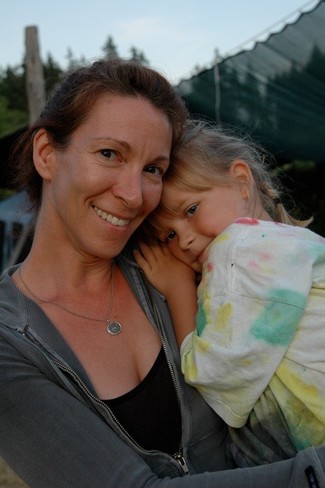June 24, 2019
Non-smoking bylaws purview of the province, not neighbours, says Victoria condo owner

Immediately following moving into her new Victoria, BC condo in a 17-unit strata building, Mollie Kaye began renovations. Not long after, the smell of second-hand smoke became unbearable.
“I found out it was my neighbours below. I spoke with the owner, and she agreed to smoke away from her windows, but that didn’t work. Then she agreed to buy an air purifier, but unfortunately the problem only got worse,” said Kaye. “Meanwhile my daughter was getting sick, and our doctor said it was due to second-hand smoke.”
Research has shown that no ventilation system or other measure can stop the migration of second-hand smoke between units in conjoined housing. Smoke invariably travels, and finds its way to other homes—not only through windows and balconies, but lighting and plumbing fixtures, baseboards, and electrical outlets.
“My next option was to campaign the strata council to put forward a 100% no-smoking bylaw for an owner vote,” said Kaye. “One member of that four-person council was a smoker, and another a strong advocate for smokers’ rights. How are they going to handle an issue like this without bias?”
“I witnessed a meeting where the property manager presented what he called a “legally unenforceable” no-smoking bylaw to council which included “grandfathering” clauses that said existing smokers, like my two neighbours below, could continue smoking,” continued Kaye. “So a few other residents and I petitioned for a complete smoking ban, which led to the tabling of two non-smoking bylaws by owners.”
“At the AGM, our property manager introduced the two bylaws and characterized the more comprehensive bylaw as ‘severe,' which led to owners feeling compassion for smokers and voting for the 'grandfathering for current smokers' bylaw.”
Kaye filed a complaint under the new bylaw, and the property manager insisted “more due diligence is required,” raising the possibility that it was Kaye’s child smoking, even though the neighbours had identified themselves as the source of the second-hand smoke.
“Somehow our strata council and our property management firm seemed to feel there’s a grey area where protecting people’s health and investments are concerned.” said Kaye. “If a neighbour’s tap was overflowing and causing water damage to my unit, someone would be called in to deal with it immediately. Why do we not treat second-hand smoke the same way? Putting the burden on neighbours who serve on strata councils to enact bylaws and adjudicate situations where people’s health is threatened is unreasonable. A provincial law forbidding smoking in conjoined housing would make it clear that everyone’s health matters. Full stop.”
With her daughter getting sicker and her newly-renovated condo so smoky that friends who visited said, “I didn’t know you smoked," Kaye and her neighbour sat down and had it out. “I yelled about how sick the smoke was making my daughter, and how it was fouling my apartment and decreasing its value. I ended up breaking down crying and begged her to please stop.”
Without official censure from council, which council couldn’t quite figure out how to navigate, Kaye’s neighbours have now agreed to observe the bylaw, which says current smokers can’t smoke indoors “if the second-hand smoke is affecting other residents.” They leave the building to have their cigarettes, and while occasionally Kaye can smell smoke, her situation has vastly improved.
“Thinking about it, I just don’t understand how the BC government can continue to acknowledge that second-hand smoke is a Group A carcinogen, enact far-reaching smoking bans to protect British Columbians from tobacco and cannabis smoke exposure in public areas and workplaces, but fail to protect people where they live and sleep.”
“Half the population of BC lives in apartments, condos and townhomes – this is a huge failure on the government’s part to protect public health,” she continued.
BC’s Tobacco and Vapour Products Control Regulation sets a six-metre smoke-free zone around all doorways, air intakes and open windows to any public and work places in BC, in which no one can stand and use tobacco, cannabis or vapour products.
“If our building were a public or work place, then every time my neighbours smoked, they would be automatically violating this law. Effectively, they’re about two metres away from us, and their smoke is migrating directly into my living space where we’re forced to breathe in cancer-causing chemicals for hours a day,” Kaye added.


